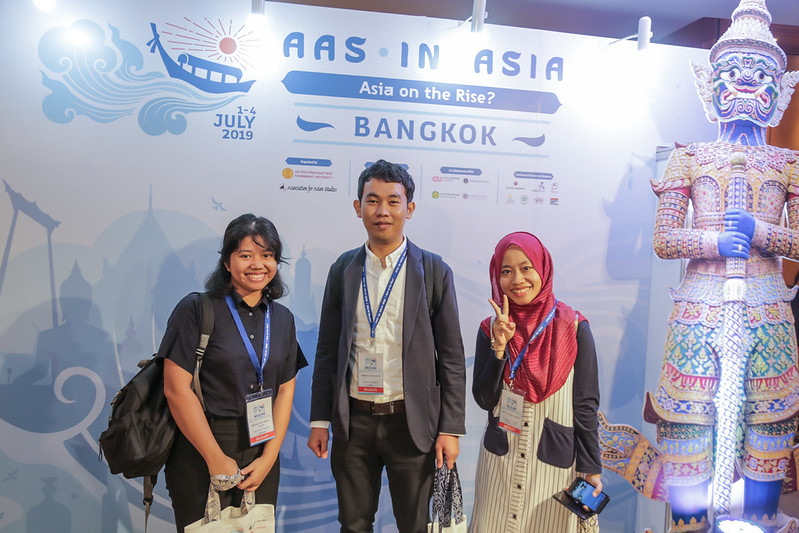
As we approach the end of 2022, I wanted to restart here on the #AsiaNow blog a feature of the old hardcopy AAS newsletter that we circulated to our members: a public-facing membership report. Through this report, the current membership can gain an understanding of their fellow members, take stock of our on-going membership projects, and learn about ways to include new members from around the world. The membership data below were pulled on December 1, 2022.
| Membership Category | Total Members |
| Individual Memberships | 6,585 |
| Institutional Memberships | 18 |
Individual Memberships by Type
Since I joined AAS in August 2021, I have worked with AAS Board of Directors and the Secretariat to expand the types of memberships offered to reflect better the varied financial and career conditions of individuals pursuing Asian Studies. With that in mind, we have introduced the following new categories of membership:
- Non-OECD Memberships for individuals making less than $46,000 living outside the United States, Canada, and parts of Europe
- Retired Memberships for individuals engaged in Asian Studies, but living on fixed incomes
- Multi-year Student Memberships for emerging scholars pursuing a degree
- K12 Educator Trial Memberships for teachers exploring what AAS has to offer
These new types of membership are still in their infancy, and we will have a better understanding of their impact as new members come on board and take advantage of these rates.
| Membership Type | Members |
| Regular | 5,000 |
| Student | 1,079 |
| Lifetime | 254 |
| Retired | 107 |
| Non-OECD | 67 |
| Associate | 57 |
| K12 Educator Trial | 21 |
Our Institutional Members
Since August 2021, we have considerably expanded the scope of and participation in our institutional memberships. We currently have 18 institutional memberships, representing a wide range of organizations, including higher education institutions and foundations:
- East Asian Studies – Dickinson College
- East Asian Studies Center – Indiana University
- Lahore University of Management Services
- Department of East Asian Studies – Princeton University
- Royal University Phnom Penh
- Department of Asian Languages & Cultures – Rutgers University
- Savitribai Phule Pune University
- Asian Studies Department – St. Olaf College
- Asian Studies Program – Temple University
- Tracing Patterns Foundation
- Center for East Asian Studies – University of Arizona
- School of Pacific and Asian Studies – University of Hawaiʻi at Mānoa
- Center for East Asian and Pacific Studies – University of Illinois, Urbana-Champaign
- Instituto do Oriente – University of Lisbon
- Asian Studies Center – University of Pittsburgh
- Council on Southeast Asia Studies – Yale University
- Regional Center for Social Science and Sustainable Development – Chiang Mai University
- East Asia Center – University of Virginia
Each institutional membership includes five student memberships and five $50 discounts on regular memberships for use by any affiliate (including faculty, staff, community members, scholars-in-residence, or contingent faculty) as well as two free AAS Annual Conference registrations and additional discounts. Institutional membership is a great way to support emerging and contingent scholars in your wider organizational orbit.

The AAS Global Community
AAS members live and work in over 60 countries. As an organization founded in the United States that works primarily in English and hosts its largest annual meeting in the United States, it is perhaps unsurprising that the bulk of our membership (4,474) has a primary address in North America.
One of the strategic priorities over the next five years is to expand and internationalize the AAS membership by including in the membership more students, scholars, teachers, and practitioners living and working in Asia. The Non-OECD membership category and the renewed commitment to an annual AAS-in-Asia Conference are two efforts towards reaching that goal.
AAS Membership by Area and Discipline of Research
| Geographic Area of Study | Members |
| Diaspora | 40 |
| East and Inner Asia | 2,688 |
| General | 519 |
| Northeast Asia | 2,000 |
| South Asia | 504 |
| Southeast Asia | 834 |
Overall, the membership of AAS is focused on the study of East, Inner, and Northeast Asia (primarily China [PRC], Japan, and the Korean peninsula). As a historian of South Asia, one of my objectives as the membership manager is to increase our membership among South and Southeast Asianists. This is a project long in the making and one that the AAS board has been aware of and working on for many years. In this effort, AAS plans to:
- Increase our participation in and visibility at the Annual Conference on South Asia held in Madison, WI
- Raise the prominence of the Journal of Asian Studies among South and Southeast Asianists
- Increase the number of student members pursuing the study of South and Southeast Asia
- Support students and scholars living in South and Southeast to attend the AAS-in-Asia Conference
If you have suggestions for how to increase our membership among South and Southeast Asianists, please reach out to me at wwarner@asianstudies.org
| Division | Total Members | Top Discipline(s) (Number of Members) |
| Environmental Studies | 23 | Environmental Studies (23) |
| Humanities | 3,976 | History (1,670) |
| Literature (761) | ||
| Asian Studies (472) | ||
| Language | 134 | Language (65) |
| Linguistics (54) | ||
| Translation (15) | ||
| Library Science | 135 | Library Science (124) |
| Information Technology (11) | ||
| Social Science | 1,444 | Anthropology (479) |
| Political Science (353) | ||
| Sociology (199) | ||
| Other/Not Available | 869 |
As it stands, our members primarily research in disciplines associated with the Humanities (this is admittedly arbitrary. In the United States, history is categorized in the humanities, while in India, history is often included in departments of social science). We would like to see greater representation among social scientists. The current AAS Vice President, Jean Oi, is particularly invested in increasing economists as members and participants in the AAS Annual Conference.
What Can You Do?
The strength of AAS lies in its members. With that in mind there are a few steps that you can take to strengthen our membership and, thereby, support the international field of Asian Studies:
- Encourage your department or research center to become an AAS Institutional Member and share the 10 membership discount codes with your students, colleagues, and community affiliates
- Gift memberships to your students (only $40 per year)
- Gift a membership to a colleague living outside of the US, Canada, and parts of Europe (only $30 per year)
- Renew for multiple years
Thank You for Supporting AAS!
On behalf of the Secretariat and Board of Directors, thank you for your continued support of AAS and the wider field of Asian Studies through your membership, teaching, research, and service. We look forward to seeing you online and in-person at the AAS Annual Conference in a few short months. Please do not hesitate to reach out to me with questions, concerns, or comments!

H William Warner
AAS Membership Manager
wwarner@asianstudies.org

